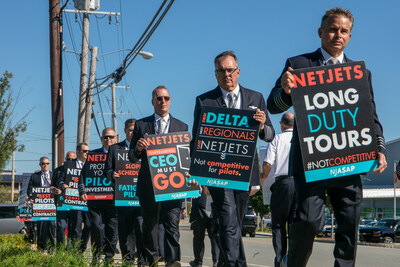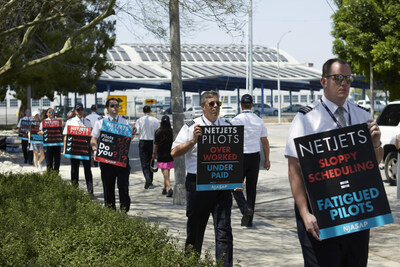 bar1080
2 meses hace
bar1080
2 meses hace
Berkshire Fine Spinning Associates is Formed
Berkshire Fine Spinning Associates Inc. incorporated under Massachusetts laws in 1929 as a consolidation of Berkshire Cotton Manufacturing Co., Valley Falls Co., Coventry Co., the Greylock Mills, and Fort Dummer Mills. The company changed its name to Berkshire Hathaway in 1955 when it acquired Hathaway Manufacturing Co. Berkshire Fine Spinning Associates Inc. manufactured fine grades of cotton textiles and specialized in fine lawns, batistes, nainsooks, organdies, dimities, handkerchief cloths, broadcloths, oxfords, sateens, rayon and silk mixtures. Plants were located in New Bedford, Massachusetts. Berkshire offered 33,000 shares of common stock in 1929 at $40 per share as well as 4,860 shares of 7% Preferred stock, also at $40 per share. Unfortunately, the shares were offered in the middle of the 1929 bull market, and the share price collapsed soon after. In November 1929, the ask price for Berkshire stock was still at $40, but in November of 1931, shares sank to $0.50. Sales for the company declined and Berkshire ran losses until 1936.
As late as 1940, shares traded as low as $3, but profits and the share price picked up with the war. Berkshire did well enough that it was able to reinitiate a regular dividend in 1942 (the dividend had been suspended in March 1930), and in September 1947, the company had a 3-for-1 split. Of course, the split marked the high mark for Berkshire and the stock began a downward trend that lasted until 1962. The graph below shows the performance of Berkshire Hathaway Inc. stock from 1929 until 1967 when Warren Buffett took over the company. As you can see, there was little change in the stock price in the forty years before then. Berkshire lost money between 1930 and 1936, and it lost money in 1957, 1958 and 1961 to 1963. Despite the fact that sales had tripled between the 1930s and the 1960s, there was no comparable increase in profits. In 1963, Berkshire stock was still trading below the price it had been offered at in 1929!
Buffet Buys Berkshire
Buffett began buying shares in Berkshire Hathaway at less than $8 in 1962 and by 1966, Buffett and his partners had taken over the company.As soon as Buffett took over Berkshire, he began focusing on insurance and other businesses rather than textiles. Buffett had invested in American Express when Anthony de Angelis’s fraud caused the price of American Express to drop dramatically in 1964. In the 1970s, Buffett expanded his investments to include media companies (The Washington Post and ABC) as well as other companies that fit his investment criteria. The final Berkshire mill was closed down in 1985.
Berkshire Hathaway paid a regular dividend between 1942 and 1960 when the dividend was suspended due to losses. Buffett paid a $0.10 dividend in November 1967, but that was the only dividend the company ever paid under Buffett. Thenceforward, profits were reinvested in the company to allow the share price to grow. Buffett lived off of his $50,000 salary and outside investment income. Berkshire Hathaway stock continued to trade OTC until October 1976 when it listed on NASDAQ. The shares moved to the New York Stock Exchange in November 1988 and in May 1996, Berkshire issued lower-priced Class B shares to investors who could no longer afford to buy a share of Berkshire Hathaway, Class A shares, which by that time had risen in price to $35,000.
Berkshire Booms
The impact of Buffett on Berkshire was incredible. Shares in Berkshire which had gone nowhere for 40 years began increasing at a rapid pace. The stock closed at $18.625 in 1966. Shares first broke the $100 mark in 1977, the $1000 mark in 1983, the $10,000 mark in 1992 and the $100,000 mark 2006. Shares now trade around $200,000. Buffett could have bought any company and the results would have been the same. As soon as Buffett took over Berkshire Hathaway, he began to focus on other businesses and ignore the company’s core manufacturing business. In fact, at one point, Buffett said that buying the textile business had been the worst trade of his life. I guess everyone is allowed one mistake.
https://globalfinancialdata.com/berkshire-before-buffett
 bar1080
3 meses hace
bar1080
3 meses hace
"Buffett warns of ‘casino-like’ investor behavior. Here’s the hidden cost of ‘free’ investing"
"The landscape of investing has undergone a seismic shift, with the advent of commission-free trading and low-cost ETFs. While this has empowered retail investors, it has also introduced new challenges. Fees have been significantly reduced, but investors now face less visible but equally harmful costs associated with increased risk."
"Buffett’s warning
In today's "free" investing world, many in the finance industry seem bent on distracting investors from this goal. Investors who have not (yet) embraced broad market indexing are being encouraged to trade more actively and take more risk. As Warren Buffett observed, “markets now exhibit far more casino-like behavior than they did when I was young. The casino now resides in many homes and daily tempts the occupants.”"
"This casino-fication of markets can be seen in the explosion of stock options trading volumes, particularly in lottery-like zero-day-to-expiration options, and the glorification of day-trading on online trading platforms that are almost indistinguishable from online gambling sites. All sorts of leveraged, concentrated, and options-based ETFs have come to market, and have attracted hundreds of billions of dollars in short order."
"Double-whammy for active investors
Unfortunately, the bad news for ordinary investors doesn’t stop here. When retail investors take on extra risk, the market participants taking the other side of their active bets are also, on average, taking extra risk. These professional trading firms need to make extra returns to compensate them for the extra risk they’re taking, and the only place that can come from is the pockets of active retail traders. This is a double whammy for active investors—they need to get extra return for the extra risk they take, but instead they wind up with a lower return, because other market participants higher up in the food chain are making extra returns at their expense. While the payment of fees can be thought of as a zero-sum transfer in that one party pays a fee and the other party receives the fee, the cost of taking extra risk is a negative sum phenomenon across all parties.
While the allure of "free" investing is strong, the “risk matters hypothesis” reminds investors to be cautious about the risk associated with deviating from the market. In most cases, the best bet may be to stick with broadly diversified index funds."
This story was originally featured on Fortune.com
 eastunder
7 meses hace
eastunder
7 meses hace
Technical issues briefly halt trading for some NYSE stocks in the latest glitch to hit Wall Street
12:30:00 PM ET, 06/03/2024 - Associated Press
NEW YORK (AP) — A technical issue caused the temporary halt for some stocks listed on the New York Stock Exchange Monday, including at least one whose price briefly fell nearly 100%.
Berkshire Hathaway, the company run by famed investor Warren Buffett, saw its A-class shares plunge 99.97% to $185.10 from Friday's closing price of $627,400, before its trading was halted. After the shares later resumed trading, they immediately recovered all those losses and shot toward $700,000.
Throughout the halt, Berkshire Hathaway's lower-priced B-class shares, which typically trade in concert with the A-class shares, seemed to trade more normally.
The New York Stock Exchange said in a trading update on Monday that trading was halted “in a number of stocks” following a technical issue related to the publication of some pricing data. “Impacted stocks have since reopened (or are in the process of reopening) and the price bands issue has been resolved,” it said shortly after 11 a.m. Eastern time.
The exchange did not give a full list of stocks affected, but trading of Berkshire Hathaway's A-class shares was halted at 9:50 a.m. Eastern time, just before the NYSE first said it was investigating a technical issue.
It's not the first glitch to hit Wall Street recently. Last week, S&P Dow Jones Indices said an issue prevented the publication of real-time pricing for its widely followed S&P 500 index for more than an hour during Thursday's late-morning trading.
The industry has just moved to a new system where the settlement of stock trades happen much faster than they used to. Now, most stock trades need to settle in one business day after a deal is made, instead of the prior requirement of two days.
The change was suggested by of the Securities and Exchange Commission suggested after the “meme-stock” craze of early 2021 put an incredible strain on the market's plumbing, which eventually led some brokerages to restrict buying of GameStop and other stocks. That caused much anger among their customers.
 bar1080
8 meses hace
bar1080
8 meses hace
Berkshire pares huge Apple stake as cash, operating profit set records
"SHM: OMAHA, Neb. (Reuters) - Berkshire Hathaway significantly reduced its enormous stake in Apple in the first quarter, as Warren Buffett's conglomerate let its cash hoard swell to a record $189 billion."
Buffett's company also posted a record operating profit exceeding $11 billion, as its insurance operations benefited from improved underwriting and higher income from investments as interest rates rose.Based on changes in Apple's stock price, Berkshire appears to have sold about 115 million shares, or 13% of its holdings, in the quarter, ending with about 790 million."
https://finance.yahoo.com/news/berkshire-posts-record-operating-profit-121448596.html.
 fung_derf
11 meses hace
fung_derf
11 meses hace
I'm surprised to see Charlie had a relatively small position in Berkshire. At least compared to Warren.
Buffett (Warren Edward) 38.24 216,687 -1,600 -0.73 21-Nov-2023 13D 119,134.54 Low Individual Investor United States
Fidelity Management & Research Company LLC 5.85 33,168 0 0.00 31-Dec-2023 13F 1,774,915.86 GARP Low Investment Advisor Boston United States
First Manhattan Co. LLC 3.02 17,130 211 1.25 31-Dec-2023 13F 28,902.43 Deep Value Low Investment Advisor New York United States
Bartlett Wealth Management 1.11 6,314 6,237 8,100.00 31-Dec-2023 13F 9,516.52 Deep Value Moderate Investment Advisor Cincinnati United States
Norges Bank Investment Management (NBIM) 0.93 5,288 -619 -10.48 31-Dec-2023 13F 1,096,412.63 Core Value Low Sovereign Wealth Fund Oslo Norway
Munger (Charles T) 0.74 4,170 -100 -2.34 08-Mar-2023 Proxy
 bar1080
11 meses hace
bar1080
11 meses hace
LORD! Indexes track exactly, but index FUNDS ALWAYS have some microscopic tracking error.
Indexes can't be bought directly so an investor can only approximate them via a fund like a mutual fund or an ETF. Variation in stock weighting and rebalancing is inevitable. Also funds must keep cash reserves for redemptions. Those reserves will be a slight drag in rising markets and a benefit in falling ones. Even buying all 500 (or more correctly 503) stocks in the S&P won't produce a perfect match.
I really try to help IHUBers, often uninformed gamblers, but it's not easy.
I bought my first Index fund around 1990 when very few people knew of their advantages. My two sons -- an engineer and a CPA -- have had money in index funds since right after they were born. Now, as adults, their retirement money is mostly indexed, and they have no interest in changing that.


 Hot Features
Hot Features











